
Education in Canada is for the most part provided publicly, funded and overseen by federal, provincial, and local governments. Education is within provincial jurisdiction and the curriculum is overseen by the province. Education in Canada is generally divided into primary education, followed by secondary education and post-secondary. Education in both English and French is available in most places across Canada. Canada has a large number of universities, almost all of which are publicly funded. Established in 1663, Université Laval is the oldest post-secondary institution in Canada. The largest university is the University of Toronto with over 85,000 students. Four universities are regularly ranked among the top 100 world-wide, namely University of Toronto, University of British Columbia, McGill University, and McMaster University, with a total of 18 universities ranked in the top 500 worldwide.
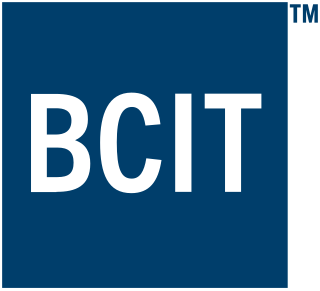
The British Columbia Institute of Technology, is a public polytechnic institute in Burnaby, British Columbia, Canada. The technical institute has five campuses located in the Metro Vancouver region, with its main campus in Burnaby, British Columbia, Canada. There is also the Aerospace Technology Campus in Richmond, the Marine Campus in the City of North Vancouver, Downtown campus in Vancouver, and Annacis Island Campus in Delta. It is provincially chartered through legislation in the College and Institute Act. The school operates as a vocational and technical school, offering apprenticeships for the skilled trades and diplomas and degrees in vocational education for skilled technicians and workers in professions such as engineering, accountancy, business administration, broadcast/media communications, digital arts, nursing, computing, medicine, architecture, and law.
The Northern Alberta Institute of Technology (NAIT) is a polytechnic and applied sciences institute in Edmonton, Alberta, Canada.

Algonquin College of Applied Arts and Technology is a publicly funded English-language college located in Ottawa, Ontario, Canada. The college has three campuses, all in Ontario: a primary campus located in Ottawa, and secondary campuses located in Perth and Pembroke. It offers bachelor's degrees, diplomas, and certificates in a range of disciplines and specialties. The college serves the National Capital Region and the outlying areas of Eastern Ontario, Western Quebec, and Upstate New York. It has been ranked among the Top 50 Research Colleges in Canada and has been recognized as one of Canada's top innovation leaders. The enabling legislation is the Ministry of Training, Colleges and Universities Act. It is a member of Polytechnics Canada.

Vancouver Island University is a Canadian public university serving Vancouver Island and coastal British Columbia. Malaspina College began in 1969 and it has grown into a university which plays an important role in the educational, cultural, and economic life of the region. The main campus is located in Nanaimo; there are regional campuses in Duncan and Powell River as well as a centre in Parksville.
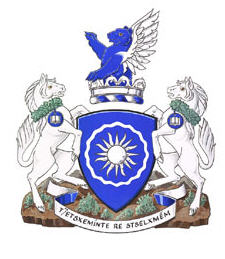
Thompson Rivers University is a public teaching and research university offering undergraduate and graduate degrees and vocational training. Its main campus is in Kamloops, British Columbia, Canada, and its name comes from the two rivers which converge in Kamloops, the North Thompson and South Thompson. The university has a satellite campus in Williams Lake, BC and a distance education division called TRU-Open Learning. It also has several international partnerships through its TRU World division. TRU is accredited by the Northwest Commission on Colleges and Universities (NWCCU) at the associate, baccalaureate and master's degree levels.
Georgian College is a College of Applied Arts and Technology in Ontario, Canada, partnered with ILAC International College. It has 13,000 full-time students, including 4,500 international students from 85 countries, across seven campuses, the largest being in Barrie.

The University of the Fraser Valley (UFV), formerly known as University College of the Fraser Valley and Fraser Valley College, is a public university with campuses in Abbotsford, Chilliwack, Mission and Hope, British Columbia, Canada. Founded in 1974 as Fraser Valley College, it was a response to the need for expanded vocational training in the communities of the Fraser Valley. In 1991, it became a university college, with degree-granting status. As the University College of the Fraser Valley, it grew rapidly, becoming one of the largest university colleges in Canada.
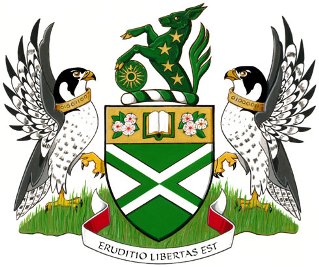
Langara College is a public degree-granting college in Vancouver, British Columbia, Canada which serves more than 19,000 students annually. Langara College started in 1965 as part of Vancouver Community College and in 1970, it opened its West 49th Avenue campus. On April 1, 1994, Langara College was established as an independent public college under the Provincial College and Institute Act. The College is also known as snəw̓eyəɬ leləm̓, house of teachings, a name given to us by the Musqueam First Nation, on whose unceded traditional territory we are located.
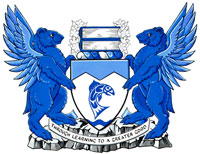
Capilano University (CapU) is a teaching-focused public university based in North Vancouver, British Columbia, Canada, located on the slopes of the North Shore Mountains, with programming that also serves the Sea-to-Sky Corridor and the Sunshine Coast. The university is named after Chief Joe Capilano Sa7plek (Sahp-luk) who was the leader of the Squamish people (Sḵwx̱wú7mesh) from 1895 to 1910.
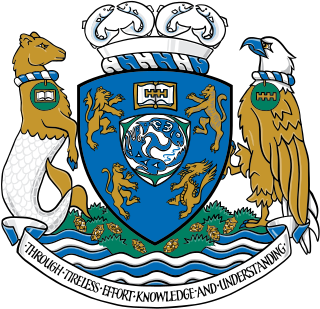
Kwantlen Polytechnic University (KPU) is a public undergraduate degree-granting polytechnic university in British Columbia, Canada, with campuses in Surrey, Richmond, Cloverdale, Whalley, and Langley. KPU is one of the largest institutions by enrolment in British Columbia garnering a total of 20,000 students and 1,400 faculty members across its five locations, encompassing the gestalt of the Metro Vancouver district. KPU provides undergraduate and vocational education including bachelor's degrees, associate degrees, diplomas, certificates, apprenticeships, and citations in more than 140 diverse programs.
Northern Lights College (NLC) is an institution that provides post-secondary education to residents of Northern British Columbia. It currently has campuses and access centers in eight communities across the northern third of British Columbia, with Regional Administration located on the Dawson Creek campus. As of 2021 international students comprised 25% of NLC's total student headcount, and Indigenous students 20%. NLC has a working agreement with the University of Northern British Columbia. The college president is Todd Bondaroff.

Okanagan College is a public, post-secondary institution with over 120 certificates, diplomas, degrees and programs including apprenticeship and pre-apprenticeship trades programs. Its largest campus is located in Kelowna, British Columbia, Canada. Established in 1963, Okanagan College has since grown to be the largest college in British Columbia outside the Lower Mainland and Victoria with roughly 5,000 full-time students on four regional campuses and is the second-largest trade school in British Columbia. 1,885 international students from over 40 countries studied at Okanagan College in 2022-23, comprising 11% of total student headcount. The College once had one of the fastest growing populations of Aboriginal students of any college in the province; in the 2015-16 academic year Okanagan College delivered educational programming to 1,680 Aboriginal students. However, the growth did not continue, in 2021-22 the Indigenous student headcount remained at 1,690.

FNTI is an Indigenous-owned and -governed post-secondary institute located in Tyendinaga Mohawk Territory in Ontario. The institute puts on programming rooted in Indigegogy and Indigenous ways of knowing.

Nicola Valley Institute of Technology (NVIT) is British Columbia's Aboriginal public post-secondary institute in British Columbia, Canada. It started in 1983.

Higher education in Canada includes provincial, territorial, Indigenous and military higher education systems. The ideal objective of Canadian higher education is to offer every Canadian the opportunity to acquire the skills and knowledge necessary to realize their utmost potential. It aspires to cultivate a world-class workforce, enhance the employment rate of Canadians, and safeguard Canada's enduring prosperity. Higher education programs are intricately designed with the perspective of the learner in focus, striving to mitigate risks and assure definite outcomes.
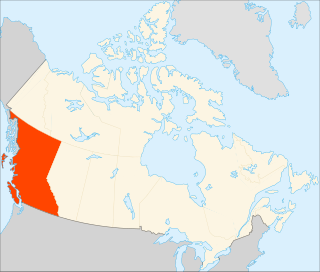
Higher education in British Columbia is delivered by 25 publicly funded institutions that are composed of eleven universities, eleven colleges, and three institutes. This is in addition to three private universities, five private colleges, and six theological colleges. There are also an extensive number of private career institutes and colleges. Over 297,000 students were enrolled in post-secondary institutions in British Columbia in the 2019-2020 academic year.

Anishinabek Educational Institute (AEI) is an First Nation-owned and controlled post-secondary institution in Canada. Indigenous institutes partner with colleges and universities to offer students degree programs, apprenticeships, certificate programs and diploma programs. AEI was founded to provide greater access to post-secondary education for First Nation peoples. AEI delivers post-secondary programs approved by the Ministry of Training, Colleges and Universities. The educational curriculum was adapted to meet the needs of Indigenous learners to ensure it reflects community needs, cultural heritage and identity.
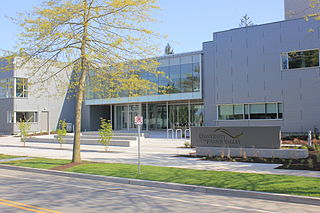
Canada Education Park (CEP) is located on the southside of Chilliwack at the former site of the Canadian army base called CFB Chilliwack. It is home to learning institutions including University of the Fraser Valley, Justice Institute of BC, and RCMP Pacific Region Training Centre.
















